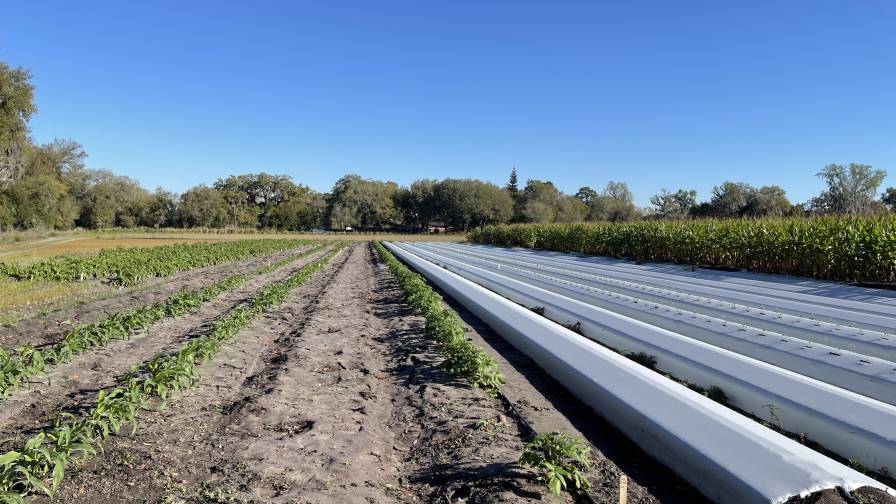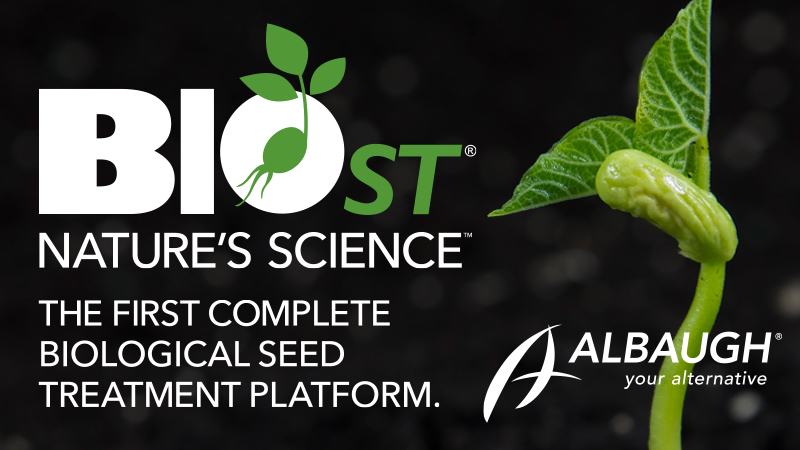Seeding The Future
Editor’s note: Although retailers have generally enjoyed a reprieve from gloom and doom stories of a shrinking sales base for crop protection and fertilizer and low crop prices, the importance of seed getting into the mix of offerings for full-service organizations hasn’t gone away. In fact, given the pipeline of biotech traits that’s poised to unleash updated and new technology over the next five years, seed is of growing importance.
The writing was on the wall a decade ago when biotech crop adoption started its run up in U.S. agriculture. For the full-service retailer to survive the fast declining value of crop protection products, seed would need to develop into a profit center to help offset some of the loss of revenue. But it wouldn’t be as easy as clearing some warehouse space, hiring a few folks, and printing off brochures.
There were, and continue to be, many barriers. The farmer-seedsman distribution system firmly in place in the 1990s turned some grower-customers into competitors for early retailer adopters of seed, and in many cases delayed a retailer’s entry into seed sales. Growers were used to buying from growers. Selling seed takes a different approach, and the learning curve is steep.
Still, seed has slowly advanced in importance at the full service retail outlet over the past decade, and both seed manufacturers and retailers have learned plenty of lessons about the market, and each other, over the past 10 years. And while it continues to evolve, and sales territories vary widely in their acceptance of the retailer as seedsman, there’s a clearer vision of how seed works effectively and profitably at the dealership.
“For retailers that have dedicated salespeople on the road and working with customers on a range of inputs, seed is a fit,” says Dave Schumacher, corn marketing manager for Mycogen Seeds. “Seed aligns well with retailers handing it in conjunction with other inputs – especially considering that herbicide and insecticide tolerant traits are a major part of seed today. It makes the decision more integrated.”
“The retailer has always been the ‘go-to’ guy for chemicals and fertilizer,” concurs Justin Wolfe, regional sales director for Monsanto. “In the future, many products will tie the seed to the chemistry — the system approach is a natural evolution. The retailer is the one person that has an opportunity to work with the farmer on the entire package.” =
“Retailers are accelerating their ability to provide leading expertise,” says Jamie Leifker, marketing manager at NK Seeds. “Most are capable of providing solutions to meet grower needs in the marketplace — that is, a complete solution vs. just a product. They grow business by being solutions-driven rather than product-driven, especially with seed.”
This should not be confused with the notion of pre-building “bundles” that fit groups of growers, something that hasn’t at all proven successful, says NK’s Leifker. We’ve not seen success dragging bundled offerings across multiple geographies. When we can go into a retailer and help customize a bundled solution for the grower to meet his specific needs — this has been extremely successful. We are engaging the retailer in a planning process that identifies issues we believe are impacting the grower, helping them understand the agronomic needs that are not being met, and building a solution that the retailer can offer to the grower.”
Roy Berrey, seed division manager at Pearl City Elevator in Lena, IL, says the ability to package up products and seed has been a key advantage for their operation. Building integrated programs that bundle the best seed with the appropriate crop protection, fertilizer, and agronomy recommendations is a high value service to the cooperative’s grower customers. “We take a lot of time building recommendations for specific farmers,” he says. “Farmers are rightly very independent on decisions – there are lot of zeros behind every decision they make – but if we take the time to recommend a strong program, and if we have a trusted relationship with the grower, we can succeed.”
Driven At The Top
So what do successful retailers selling seed have in common? First and foremost, a seed program must be driven by the highest levels of management to reach its true potential.
“The retailers that succeed in seed have two attributes – dedication and focus,” says Wolfe. “And that focus needs to come from really strong commitment from its leadership.”
Pearl City Elevator has been selling seed since 1995, but didn’t make significant inroads into the seed market until the early 2000s, when it became apparent that crop protection revenues were going to take a permanent bite out of the company’s profitability, notes Berrey.
“We started getting management recognition that seed was becoming a bigger play in profit potential as Roundup Ready crops began to seriously devalue the crop protection market,” says Berrey. “The focus had to shift to seed to recapture that lost revenue.”
Leadership commitment is what drives investment in resources and, most importantly, the people to execute the vision. In an ideal world, says Wolfe, there is a dedicated individual who drives training and sales within the retail sales force. Adds Schumacher, “When we look at strong reselling dealers, they all have some of the same attributes. They are committed to the business long-term, they have someone who understands the product they are representing and the customers they are dealing with.”
At Pearl City, Berrey heads up and drives the seed effort, but all the salespeople sell all three inputs. The benefit to that has been the ability to provide a total view of the agronomic strategy, and ultimately the bottom line profitability of a particular farm as they relate to the seed choice.
At retail operations where the economies of scale won’t provide for a seed manager, then the salesmen must get as deep in knowledge as possible and have the skills to position all three inputs, says Wolfe. “Not everyone can do it — you can get spread too thin. Some guys end up driving a floater or doing some other tasks, and don’t get the time they need to develop the seed business, and this development time is critical to success. It can be a three-year process to get on a farm and in a situation where you can position products with a grower.”
The 800-pound gorilla in the room these days is the labor shortage, warns Leifker. “In general, we are sensing a war for talented people out there,” he says. “Retailers must not only focus on attracting and hiring very capable and energetic people, but also on keeping them. Talented people in the ag sector are a rare and precious commodity.”
Despite the challenges, the diversity of expertise and depth of resources put the full-service retailer in a strong seed position, if the retailer makes the full commitment to retaining talent.
“We will continue to bring new and innovative traits and genetics to increase yields, but we still believe that one-third of future yield is in better agronomic practices,” asserts Leifker “Retailers are in a place to capitalize on this opportunity with capital investments in equipment and technology to more actively support growers facing high input costs.”
“What we see is that growers today are adopting new technology faster than ever,” adds Schumacher. “Growers are willing to invest more because the value payoff is higher. Retailers that stay educated on traits and products in the market can accurately represent the value of the products and will make the farming operation more profitable.”






